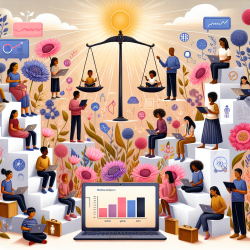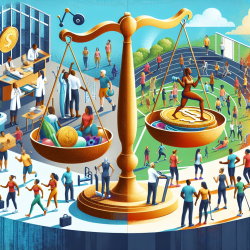In the fast-evolving world of scientific research, the need for innovative approaches to collaboration and idea exchange is more critical than ever. Enter the "Un-Meeting" model—a refreshing take on traditional conferences designed to foster dynamic discussions and transdisciplinary collaborations. If you're a practitioner looking to improve your skills in team science, understanding and implementing the Un-Meeting model could be a game-changer.
What is an Un-Meeting?
The Un-Meeting concept flips the script on conventional scientific gatherings. Unlike traditional conferences with rigid agendas and one-way presentations, Un-Meetings emphasize participant-driven content and active engagement. The agenda is created in real-time by attendees, allowing for spontaneous discussions and collaborations. This format is particularly beneficial in fields like translational science, where cross-disciplinary teamwork is essential for moving from discovery to clinical application.
The Benefits of Un-Meetings
- Enhanced Networking: With a focus on small-group interactions and idea sharing, Un-Meetings provide ample opportunities for networking across diverse fields.
- Diverse Participation: By bringing together scientists, policy-makers, community members, and public health professionals, these meetings encourage a rich exchange of perspectives.
- Innovation Stimulation: The fluid structure of Un-Meetings fosters creative thinking and can lead to groundbreaking research ideas.
Implementing Un-Meeting Principles in Your Practice
If you're interested in incorporating elements of the Un-Meeting model into your professional practice, consider these steps:
- Create a Flexible Agenda: Allow participants to contribute topics and ideas in real-time. This encourages ownership and engagement.
- Encourage Cross-disciplinary Interaction: Invite stakeholders from various fields to provide different perspectives on common challenges.
- Facilitate Active Participation: Use breakout sessions and small group discussions to ensure everyone has a voice.
The Future of Scientific Collaboration
The success of the Un-Meeting model suggests a promising future for this approach in advancing team science. As more institutions adopt this format, it could lead to more effective collaborations and faster scientific advancements. Practitioners are encouraged to explore this model further and consider how it might be adapted to their specific needs.
If you're intrigued by the potential of Un-Meetings to enhance your professional skills and foster innovation, why not take a deeper dive? To read the original research paper that explores this model in detail, please follow this link: Utilizing the Un-Meeting model to advance innovative translational and team science.










